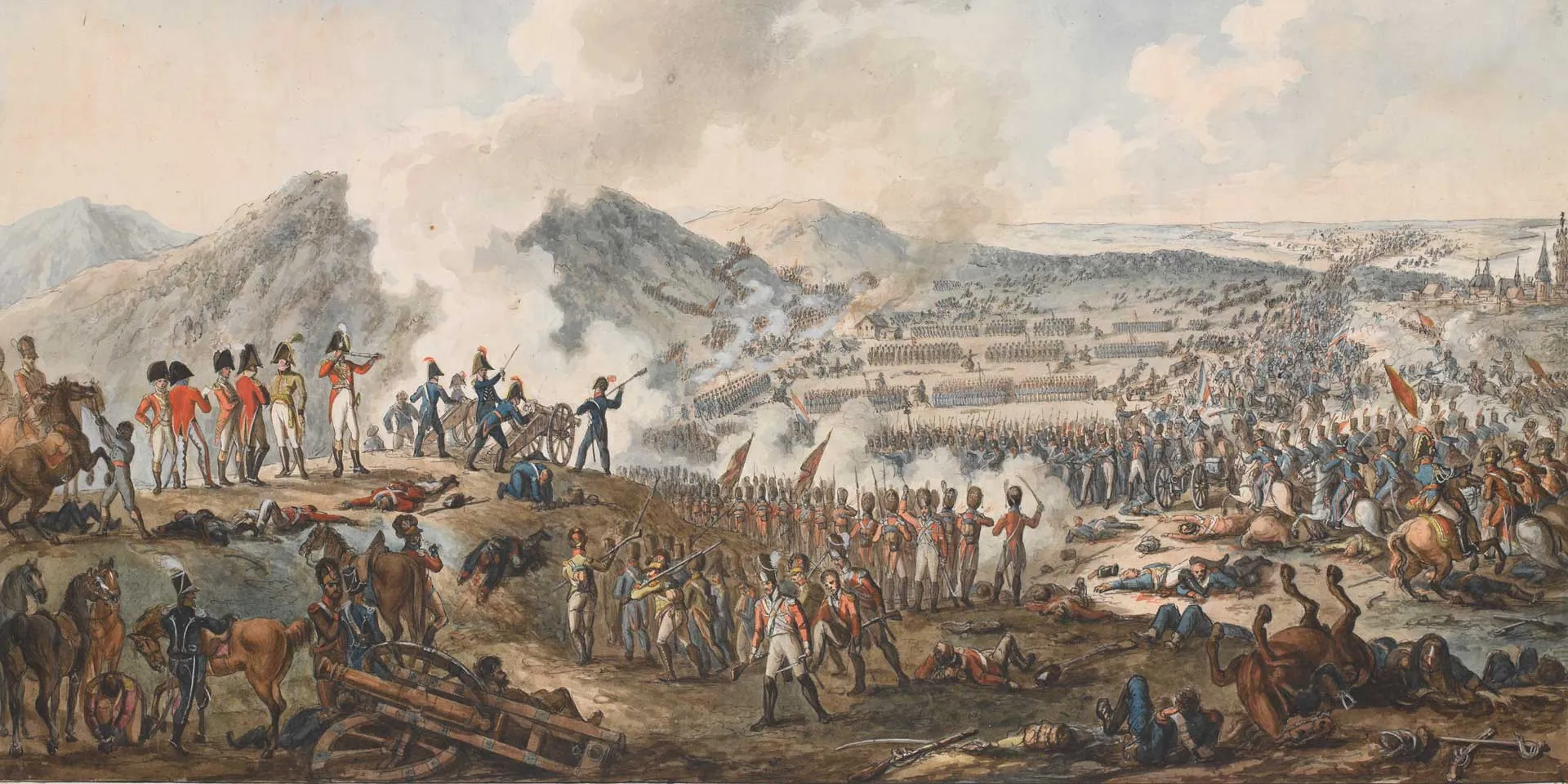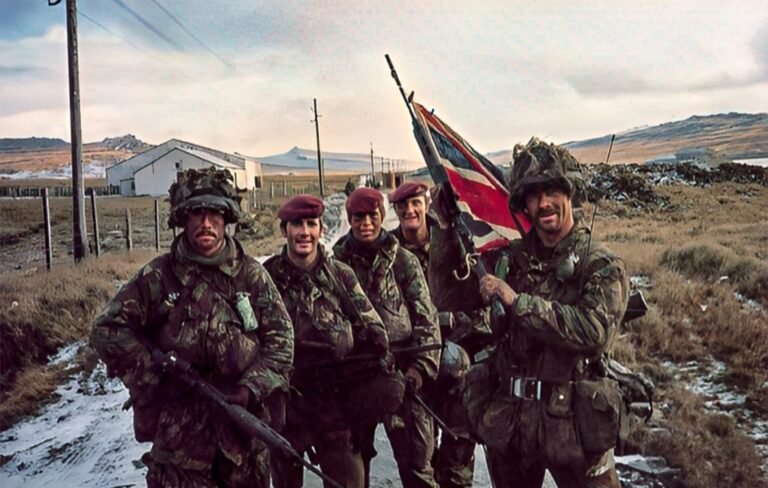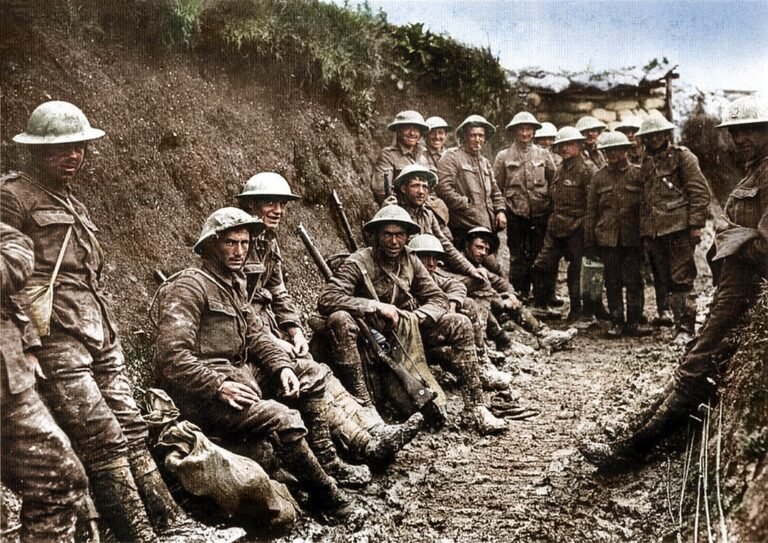The Peninsular War was a major conflict in the early 19th century. It reshaped Europe’s political landscape and left lasting impacts.
Spanning from 1807 to 1814, this war took place on the Iberian Peninsula, involving Spain, Portugal, and Britain against Napoleon’s France. It was part of the larger Napoleonic Wars, a series of conflicts involving many European nations. The Peninsular War is known for its guerrilla warfare, strategic battles, and the eventual weakening of Napoleon’s forces.
This war also sparked nationalistic movements in Spain and Portugal. Understanding this conflict offers insights into European history, military strategies, and the rise of national identities. Join us as we explore the key events and significance of the Peninsular War.

Credit: en.wikipedia.org
Origins Of The Peninsular War
The Peninsular War began in 1808 when Napoleon’s forces invaded Spain and Portugal. This conflict lasted until 1814, shaping European alliances and resistance. It played a key role in the downfall of Napoleon, as local forces, supported by Britain, fiercely resisted French control.
The Peninsular War, a significant conflict during the Napoleonic era, reshaped European politics and military strategies. Understanding its origins is crucial to grasping the broader implications it had on the continent. This war wasn’t merely a clash of armies; it was a battle of wills and national identities. What sparked such a fierce struggle? The answer lies in the ambitions of Napoleon and the unyielding spirit of Spanish resistance.
Napoleon’s Ambitions
Napoleon Bonaparte was a man driven by a relentless desire for power. His aim was to expand the French Empire and dominate Europe. By the early 1800s, he had already achieved significant conquests. Spain, situated strategically on the Iberian Peninsula, was too tempting a prize to ignore.
Napoleon sought to control Spain to isolate Britain, his greatest rival. He imposed his brother, Joseph Bonaparte, as the king of Spain. This decision, however, was met with immediate disapproval. The imposition of a foreign ruler highlighted Napoleon’s overreach and sparked widespread unrest.
You might wonder, could Napoleon have anticipated the fierce backlash? Perhaps he underestimated the Spanish people’s resolve and their deep-seated cultural pride. His ambitions set the stage for a conflict that would challenge his military prowess.
Spanish Resistance
The Spanish people, deeply connected to their land and traditions, were not about to accept foreign rule quietly. The appointment of Joseph Bonaparte was seen as an affront to their sovereignty. This triggered a national uprising fueled by a mix of patriotism and outrage.
Ordinary Spaniards, from peasants to nobility, took up arms against the French. Guerilla tactics became their weapon of choice, turning the familiar landscape into a battlefield. These unconventional warfare methods caught the French off guard and demonstrated the power of popular resistance.
You may relate to the Spanish resistance if you’ve ever fought against overwhelming odds. Their determination serves as a reminder that even the most formidable adversaries can be challenged. The Spanish resistance was not just about defending territory; it was about preserving their way of life.
In the face of Napoleon’s ambitions, the Spanish showed that a united people could stand against tyranny. This resistance was a testament to the power of national identity and the human spirit. It begs the question: how far would you go to protect your heritage and freedom?
Early Campaigns
The early campaigns of the Peninsular War marked a turbulent period. These campaigns laid the groundwork for a long and brutal conflict. Both sides faced challenges, with strategies evolving rapidly. The war’s initial stages were pivotal in shaping future events.
The Invasion Of Portugal
In 1807, Napoleon aimed to control Portugal. He saw Portugal as a strategic ally of Britain. French troops entered Portugal with little resistance. The invasion forced the Portuguese royal family to flee to Brazil. Napoleon’s forces occupied Lisbon, gaining a foothold in the Iberian Peninsula.
Napoleon’s move threatened British interests. The British responded by sending troops to aid Portugal. This marked the beginning of the British military’s involvement in the Peninsular War.
The Battle Of Bailén
The Battle of Bailén occurred in July 1808. It was a significant turning point in the war. Spanish forces, led by General Francisco Castaños, faced the French. The French army, under General Dupont, was strong but unprepared.
The Spanish army successfully surrounded the French. This led to a decisive victory for Spain. The French suffered heavy losses and were forced to retreat. This victory boosted Spanish morale and weakened French dominance.
The Battle of Bailén showed that the French could be defeated. It inspired other nations to resist Napoleon’s forces. This battle became a symbol of hope and resistance across Europe.
Key Figures
The Peninsular War was a significant conflict during the Napoleonic Wars. Various key figures played crucial roles in this historical event. Understanding these individuals helps us grasp the war’s dynamics better. Let’s delve into two major figures: the Duke of Wellington and Marshal Ney.
Duke Of Wellington
The Duke of Wellington, Arthur Wellesley, was a British military leader. His strategic brilliance made him a formidable opponent. Born in 1769, he had a keen eye for battlefield tactics. Wellington’s leadership was pivotal during the Peninsular War. He commanded the Anglo-Portuguese forces with precision. His most famous victory was at the Battle of Vitoria. This triumph marked a turning point in the war. Wellington’s disciplined approach earned him great respect. He focused on training his troops well. His ability to adapt to different situations was remarkable. Wellington’s legacy in military history remains unparalleled.
Marshal Ney
Marshal Ney, known as “the bravest of the brave,” was a French commander. His full name was Michel Ney, born in 1769. Ney was one of Napoleon’s most trusted marshals. He was famous for his boldness and courage. Ney led French troops in several key battles. His fierce determination inspired his soldiers. During the Peninsular War, Ney showed remarkable resilience. He commanded with a fiery spirit and unyielding will. Ney’s leadership was crucial during the Battle of Bussaco. His tactics often involved direct and aggressive assaults. Ney’s bravery on the battlefield earned him a legendary status. Despite his ultimate downfall, his contributions remain significant.

Credit: www.britannica.com
Major Battles
The Peninsular War, from 1808 to 1814, was a key event in Europe. It was a struggle between Napoleon’s empire and the allied powers of Spain, Britain, and Portugal. Major battles during this war shaped the future of Europe. Understanding these battles offers insights into military strategies and alliances. Let’s explore two significant battles that defined this war.
Battle Of Talavera
The Battle of Talavera took place in July 1809. British and Spanish forces joined against the French army. Commanded by Sir Arthur Wellesley, the allies aimed to halt Napoleon’s progress. The battlefield was near Talavera de la Reina, in Spain. The French launched several attacks on the allied lines. Despite being outnumbered, the allies held their ground. The battle lasted two days with fierce fighting. In the end, the British and Spanish forces claimed victory. This battle marked a turning point, boosting allied morale.
Siege Of Zaragoza
The Siege of Zaragoza was a brutal and prolonged conflict. It began in December 1808 and lasted into February 1809. Zaragoza, a city in Spain, faced a relentless French assault. The Spanish defenders, led by General Palafox, showed great resilience. The city’s citizens played a crucial role in the defense. They fought bravely alongside the Spanish army. The siege saw intense urban warfare and high casualties. Despite their efforts, Zaragoza eventually fell to the French. This siege highlighted the Spanish people’s fierce resistance.
Guerrilla Warfare
Guerrilla warfare played a significant role in the Peninsular War. This unconventional fighting style challenged traditional military tactics. Small groups of fighters, known as guerrillas, used their knowledge of local terrain. They harassed enemy forces, disrupting supply lines and communication.
Tactics And Strategies
Guerrillas employed hit-and-run tactics. They avoided direct confrontations with larger armies. Surprise attacks were their specialty. Guerrillas used ambushes to catch enemy troops off guard. They relied on speed and stealth to move quickly and quietly. Their strategies made use of the rugged landscape. Mountains and forests provided natural cover.
Local intelligence was crucial. Guerrillas gathered information from villagers. This helped them plan effective raids. They used sabotage to weaken enemy positions. Destroying bridges and roads slowed French advances. Guerrillas often worked in small units. This made them difficult to capture.
Impact On French Forces
Guerrilla warfare frustrated the French forces. It drained their resources and morale. Constant harassment forced them to divert troops. Protecting supply lines became a priority. Guerrillas forced French soldiers to spread thin. Their unpredictable nature kept the enemy on edge.
The French faced constant threats from all sides. Guerrillas disrupted communication between commanders. This led to confusion and mistakes. The psychological toll was significant. Fear of ambushes affected troop movements. Guerrilla warfare prolonged the conflict. It contributed to the eventual defeat of Napoleon’s forces.
Allied Strategies
The Peninsular War highlighted key Allied strategies against Napoleon. British and Spanish forces used guerrilla tactics effectively. This war weakened Napoleon’s hold in Europe.
The Peninsular War, a significant conflict within the Napoleonic Wars, showcased a variety of strategies from the allied forces to counter Napoleon’s advances. The focus wasn’t just on military might but also on clever tactics and cooperation between nations. The alliance between Britain, Portugal, and Spain played a crucial role in turning the tide against French dominance in the Iberian Peninsula.
The key question is: how did these strategies come together to form a successful alliance?
British Involvement
Britain played a pivotal role in the Peninsular War with its strategic military interventions. British forces, under leaders like the Duke of Wellington, brought much-needed discipline and experience to the allied efforts. Their strategy included establishing strong supply lines and using their naval strength to support land operations.
Remember the stories of British soldiers marching across foreign lands? They weren’t just fighting; they were building relationships with local forces. This cooperation enabled them to gather intelligence and adapt to the rugged Iberian terrain.
British involvement wasn’t just about numbers. It was about precision, planning, and partnership. They knew the importance of working with allies to create a formidable force against the French.
Portuguese Contributions
Portugal, often overshadowed in historical narratives, was a crucial ally in the Peninsular War. Portuguese forces, restructured and trained with British assistance, became a key component of the allied army. Their knowledge of the local geography provided a strategic advantage.
Consider the impact of the local guides leading troops through unfamiliar terrain. This local expertise was invaluable in planning surprise attacks and defensive maneuvers against the French.
The Portuguese also contributed through guerilla warfare tactics. These small, mobile units were adept at disrupting French supply lines and communication channels. Their ability to move quickly and strike unexpectedly made them a constant thorn in Napoleon’s side.
As you think about these strategies, what stands out to you? Is it the collaboration, the adaptability, or the sheer will to resist a powerful foe? The allied strategies in the Peninsular War remind us that success often lies in unity and leveraging the strengths of each partner.
Turning Points
The Peninsular War was a significant conflict in the Napoleonic Wars. It involved Spain, Portugal, and the United Kingdom against France. Many battles shaped the course of this war. Each battle contributed to the eventual outcome. Some battles were pivotal turning points.
Battle Of Salamanca
The Battle of Salamanca occurred on July 22, 1812. It was a decisive victory for the Allies. The Duke of Wellington led the British forces. They faced the French under Marshal Marmont. The battle took place near Salamanca, Spain. Wellington’s tactics were bold and effective. His troops outmaneuvered the French forces. The battle lasted only a few hours. It resulted in heavy French losses. This victory boosted Allied morale. It also weakened French control in Spain.
Battle Of Vitoria
The Battle of Vitoria happened on June 21, 1813. It marked another key turning point. Allied forces faced the French army. Wellington again commanded the Allies. The battle occurred near Vitoria, Spain. Wellington’s strategy was well-planned. He divided his forces into four columns. This tactic confused the French troops. The French suffered significant losses. Many supplies were captured by the Allies. This victory marked the end of French dominance in Spain.
End Of The War
The Peninsular War was a brutal conflict that lasted from 1807 to 1814. It involved Spain, Portugal, and the United Kingdom against the mighty French Empire. The war took a heavy toll on the regions involved, marking a significant chapter in European history. The war’s end brought relief and a new beginning for the nations involved.
The Treaty Of Paris
The Treaty of Paris marked the official end of the Peninsular War. Signed in 1814, it restored peace between the warring nations. France agreed to withdraw from Spain and Portugal. This allowed these countries to reclaim their sovereignty. The treaty also led to the release of Spanish prisoners. Stability slowly returned to the Iberian Peninsula.
Legacy And Impact
The war left a lasting legacy on European politics. It weakened Napoleon’s influence and power in Europe. The conflict fostered national unity in Spain and Portugal. It inspired future resistance movements against oppressive regimes. The Peninsular War is remembered for its strategic military maneuvers. These tactics are studied in military academies worldwide.
The war also influenced cultural and social dynamics. It led to significant changes in governance and law. Many regions saw economic recovery post-war. The Peninsular War remains a key topic in historical discussions. It illustrates the resilience and determination of nations fighting for freedom.
FAQs
What Happened In The Peninsular War?
The Peninsular War (1808-1814) was a conflict between Napoleonic France and the allied forces of Spain, Britain, and Portugal. Napoleon’s invasion of the Iberian Peninsula sparked resistance, leading to guerrilla warfare. The war ended with the defeat of French forces, contributing to Napoleon’s downfall.
What Was The Most Significant Result Of The Peninsular War?
The Peninsular War significantly weakened Napoleon’s forces, leading to the eventual collapse of his empire. It also inspired nationalism in Spain and Portugal, contributing to the rise of independence movements in Latin America. This conflict marked a crucial turning point in the Napoleonic Wars.
How Many Troops Did Napoleon Lose During The Peninsular War?
Napoleon lost approximately 180,000 troops during the Peninsular War. The war lasted from 1808 to 1814.
What Did Napoleon Think Of Spain?
Napoleon viewed Spain as strategically important but politically unstable. He sought to control it for its resources and location. His disdain for Spanish resistance led to the Peninsular War, which drained French resources. Napoleon underestimated Spanish nationalism, ultimately contributing to his downfall.
Conclusion
The Peninsular War reshaped Europe in profound ways. Lessons from this conflict endure. Soldiers showed bravery and resilience. Their stories still resonate today. This war influenced military tactics and national identities. Its impact is still felt. Understanding history helps us appreciate present peace.
Reflect on the sacrifices made. Honor the past, learn for the future.








